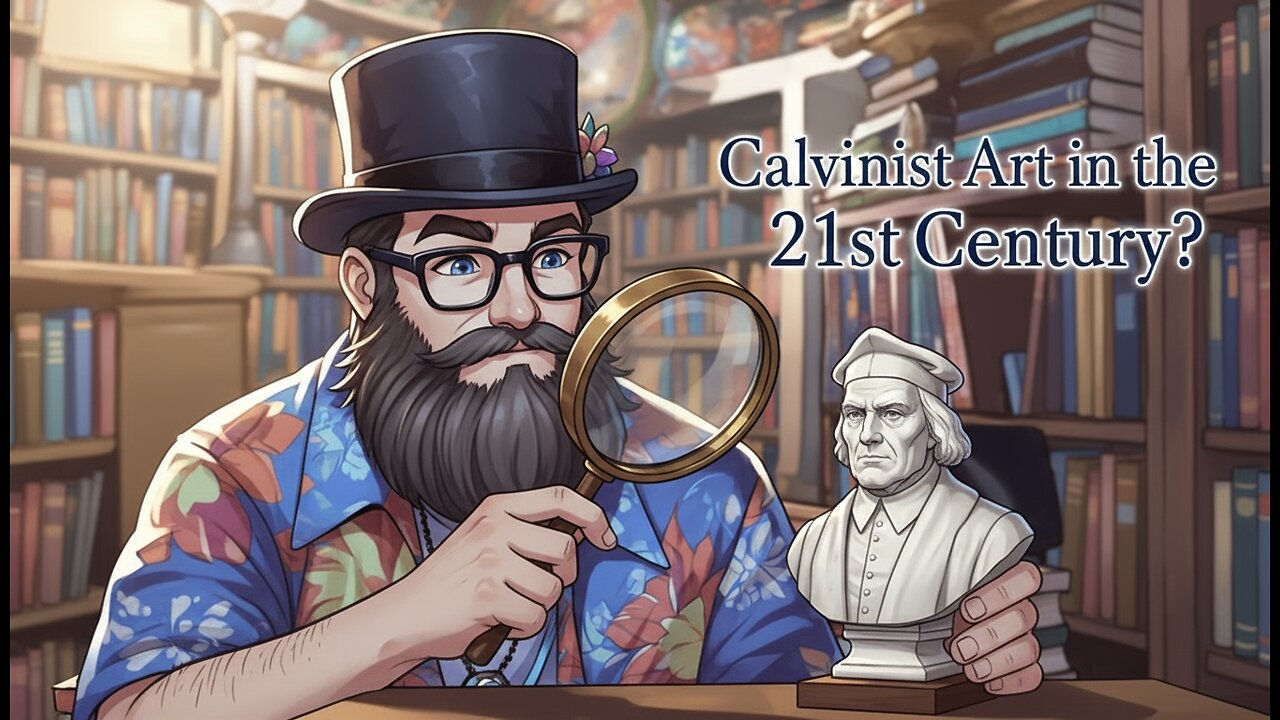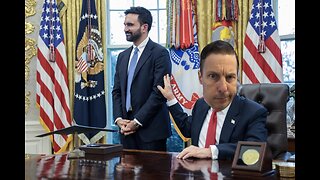Premium Only Content

Poets At War Ep. 233: Why did Calvinists Abandon Art?
In this episode of "Poets At War," Joshua embarks on a solo research journey to answer a pressing question: Where did all the Calvinist poets go? Why did a theological tradition that once produced giants like John Milton seem to retreat from the high arts and poetry?
Join us as we search for the last significant movement of "near-Calvinist" poets. Our investigation leads us to the fascinating story of the Fugitive Poets and Southern Agrarians of the 1920s and '30s. We'll read and analyze works by key figure Robert Penn Warren and explore the literary theory he co-founded, "New Criticism" — including a powerful, AI-generated explanation of it from the perspective of J.R.R. Tolkien.
The investigation deepens as we ask why this cultural shift happened. We explore critical concepts such as:
The Fundamentalist-Modernist controversy and the "Great Reversal."
The creation of a separate Christian subculture focused on utility over beauty.
The clash between a theological identity (in Christ) and modern, identity-based art forms.
Finally, we challenge the AI's initial conclusions, arguing that core Reformed theology (grounded in Creation, the Incarnation, and Common Grace) is profoundly pro-art. The conversation culminates in a strategic blueprint for how the church and its artists can work to widen this artistic application and re-engage the culture today.
Topics covered in this episode:
Calvinist Poetry & Reformed Theology
The Fugitive Poets & Southern Agrarians
Robert Penn Warren, John Crowe Ransom, Alan Tate
New Criticism & Literary Theory
J.R.R. Tolkien's view on art and sub-creation
The Great Reversal & Christian Fundamentalism
Abraham Kuyper, Francis Schaeffer, and Common Grace
The future of Art, Culture, and the Church
This is a deep dive into history, theology, and the future of Christian art.
-
 1:08:20
1:08:20
The Quartering
3 hours agoMTG Quits, Indian X Meltdown & FBI Caught Lying Again About Trump Assassin
123K68 -
 1:01:33
1:01:33
Jeff Ahern
4 hours ago $9.14 earnedThe Saturday Show with Jeff Ahern
37.6K22 -
 18:08
18:08
Professor Nez
5 hours ago🚨HOLY CRAP: Members of Congress Call for Military INSURRECTION!
102K87 -
 4:14:26
4:14:26
Grant Cardone
8 hours agoHow to Buy Real Estate With NO Money Down (LIVE Training With Grant Cardone)
102K7 -
 1:56:11
1:56:11
AlaskanBallistics
15 hours ago $4.88 earnedShooting the WhisperStrike WT30 Live!
19.5K5 -
 19:53
19:53
MetatronHistory
21 hours agoRome VS Greece - Ultimate Clash of Civilizations Explained
58K15 -
 LIVE
LIVE
The Big Mig™
7 hours agoThe Big Mig Show's Greatest Hits w/ Americas Future, Karmageddon, Operation Gideon,..
139 watching -
 1:32:33
1:32:33
VapinGamers
6 hours ago $6.44 earnedTools of the Trade - EP12 The Art of Story Telling with MidnightinTheMountains - !rumbot !music
42.3K4 -
 3:09:50
3:09:50
SOLTEKGG
6 hours ago🔴LIVE - Battlefield 6 - Going Pro in RED SEC
39.3K2 -
 5:19:03
5:19:03
Midnight In The Mountains™
7 hours agoThe Midnights Play Arc Raiders | Loot Scoot and KILL | Crypto Wallet up n running GO JOIN THE BETA!
29.9K4